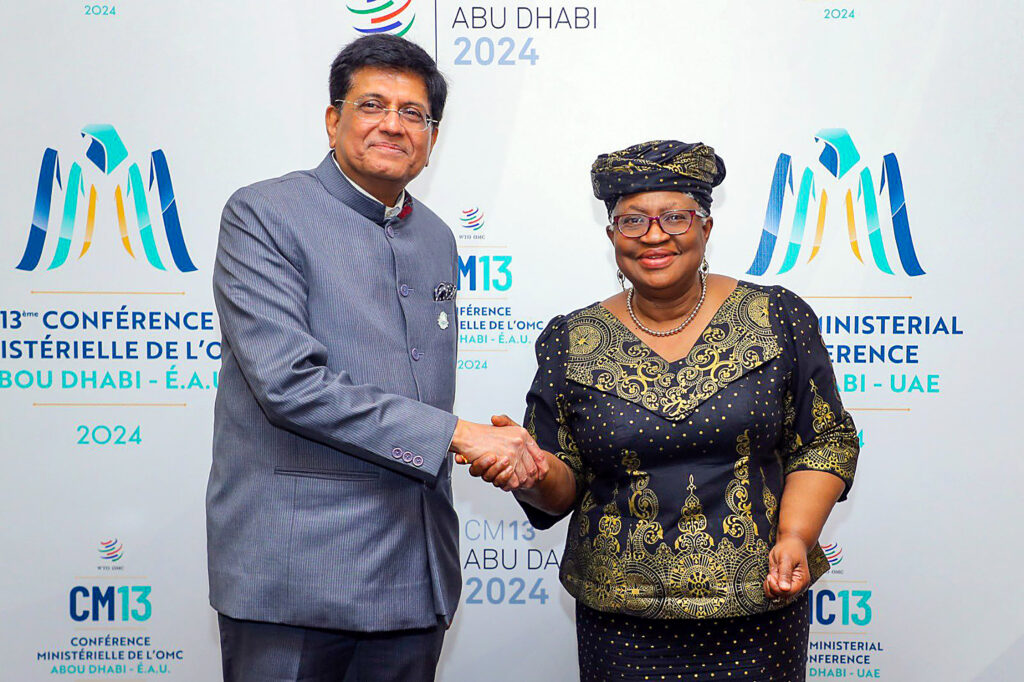Abu Dhabi: India on Thursday proposed a review of the impact of the WTO's tariff suspension on e-commerce on developing and least developed countries.
India is not in favor of further continuation of the e-commerce tariff suspension affecting developing countries.
The issue was the subject of discussion during a session of the work program on electronic commerce at the World Trade Organization's 13th Ministerial Conference, which concluded on Thursday.
E-commerce media is a rapidly growing area of cross-border and domestic trade.
India said this emerging segment of the global economy is a promising area for economic development and prosperity for developing countries, including least developed countries (LDCs).
New Delhi therefore stressed that a full range of policy options, including the imposition of tariffs on e-commerce, should be available to WTO members to foster digital industrialization.
“With the digital revolution still underway and technologies such as additive manufacturing and 3D printing, data analytics, artificial intelligence and the Internet of Things becoming more pervasive, we had to reconsider the impact of the pause, especially on developing countries. “Tariffs on electronic transmissions to countries and least developed countries do not apply,” the Commerce Department said.
Currently, a small number of companies based in developed countries dominate the global e-commerce landscape.
“India explained that there is a huge digital gulf between developed and developing countries, which makes it difficult to increase the participation of developing countries in global e-commerce,” the ministry said. said.
The country also asserted that developing countries need to focus on improving domestic physical and digital infrastructure, building supportive policy and regulatory frameworks, and developing digital capacity.
India and some other developing countries are debating the scope of the moratorium because of its impact on incomes.
Estimates suggest that the potential loss of customs revenue to developing countries amounts to approximately $10 billion each year. In India's case, that could be more than $500 million annually.
WTO members have agreed not to impose tariffs on electronic transmissions since 1998, and moratoriums have been regularly extended by successive Ministerial Conferences (MCs), the highest decision-making body of the 166 member states. .
India has seen an increase in imports of electronic transmissions, primarily movies, music, video games, and printed materials, some of which may be subject to suspension.


